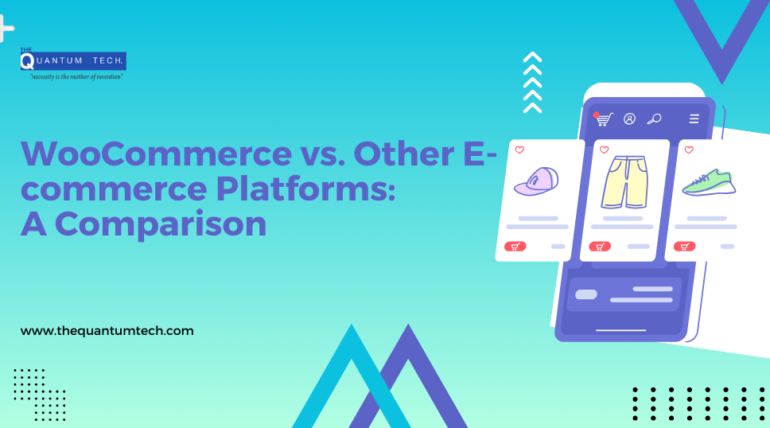
In the ever-evolving world of online business, choosing the right e-commerce platform is a crucial decision that can significantly impact the success of your online store. With a plethora of options available, each catering to different business needs, it can be challenging to pinpoint the perfect solution for your venture. In this blog, we will delve into a detailed comparison between WooCommerce, a WordPress plugin, and other popular e-commerce platforms to help you make an informed decision.
WooCommerce Overview:
WooCommerce is a powerful, open-source e-commerce plugin designed for WordPress websites. Acquired by Automattic in 2015, it has rapidly gained popularity for its flexibility, ease of use, and seamless integration with the world’s most widely used content management system (CMS), WordPress.
Key Features of WooCommerce:
- User-Friendly Interface: WooCommerce offers a user-friendly interface, making it easy for beginners to set up and manage their online stores without the need for extensive technical knowledge.
- Customization Options: With a wide range of themes and extensions, WooCommerce allows users to customize the look and functionality of their online stores to meet specific business requirements.
- Cost-Effective: Being open-source, WooCommerce is free to use, making it an attractive option for small and medium-sized businesses looking to minimize initial investment costs.
- SEO-Friendly: WooCommerce is built with search engine optimization (SEO) in mind, providing tools and features that enable better visibility on search engine results pages.
Comparison with Other E-commerce Platforms:
- Shopify:
- Ease of Use: Shopify is renowned for its simplicity, offering an intuitive drag-and-drop interface that is user-friendly for beginners.
- Hosted Solution: Unlike WooCommerce, Shopify is a fully hosted solution, meaning users don’t need to worry about server management or technical aspects.
- Transaction Fees: Shopify charges transaction fees for external payment gateways, whereas WooCommerce allows users to choose their payment gateways without incurring additional charges.
- Magento:
- Scalability: Magento is known for its scalability, making it a preferred choice for large enterprises with complex needs and a high volume of products and transactions.
- Customization: While Magento offers robust customization options, it may be more complex for beginners, requiring advanced technical expertise or professional assistance.
- Cost: Magento can be more expensive to set up and maintain, primarily due to hosting and development costs.
- BigCommerce:
- Built-in Features: BigCommerce comes with a range of built-in features, reducing the need for extensive third-party integrations.
- Scalability: Like Magento, BigCommerce is scalable and suitable for growing businesses with expanding product catalogs and customer bases.
- Pricing: BigCommerce can be more expensive than WooCommerce for larger businesses, but it eliminates the need for separate hosting expenses.
In the WooCommerce vs. Other E-commerce Platforms debate, the choice ultimately depends on your business’s unique needs, budget, and technical proficiency. WooCommerce stands out for its seamless integration with WordPress, cost-effectiveness, and user-friendly interface, making it an excellent choice for small to medium-sized businesses. However, for larger enterprises with specific scalability and feature requirements, platforms like Shopify, Magento, and BigCommerce might be more suitable. Carefully assess your business goals and preferences to make an informed decision that aligns with the future success of your online store.


